This post is also available in:  Deutsch (German)
Deutsch (German)
The port of Antwerp is the largest in the world in terms of area. That’s what the taxi driver says on the way to the city, and I believe it at once. It is a vast area of harbour basins and warehouses. There’ s a lot of activity. Cranes unload and load ships; containers are brought back and forth, trucks drive in and out. In the middle of all this is a small, old brick church.
I am happy about the taxi because I would have hopelessly lost my way in this area. It’s also a long way to the city. Eleven kilometres to the city centre are too far for a walk. There is no public transport, like buses or trams. In the taxi, we take more than half an hour. Someone in the office of the mayor of Antwerp had the great idea to refurbish all streets at the same time. Perhaps EU funds have been granted. In any case, we drive through several construction sites that congest traffic and make taxi drivers curse.
During breakfast, I noticed that the chemistry between the captain and Pierre is not so good at the moment. Pierre asks many questions. Also, the only language we have in common is English, but for all of us, English is a second language. Pierre sometimes has problems understandably formulating the question, and the captain then has to answer it in such a way that we understand it. The captain says that this is now an example of “the passenger asks too many questions”. He doesn’t want to answer everything in such detail. The logistics of loading 36,000 tons of freight into a 200 m long and 30 m wide ship is so complex that you can’t explain it in five minutes.
At breakfast, I mention that I would like to go to Antwerp, but the taxi is too expensive for me, and there is no other possibility like public transport.
Around 10:00, the phone rings. It’s the captain’s speaking. He and his wife would go into town today at fourteen hundred and would I want to go with them? I want to. I am happy. This way we can share the costs.
In the morning, I am busy taking pictures. I do a time-lapse and video sequence of unloading the hold directly in front of my window. Then I climb with my cameras up to the balcony of the bridge. But the walk is not so easy. There is a lot of activity everywhere. In the back area, the small ship cranes are used to lift new lifeboats on to the ship and garbage down to the dock. I have to be careful not to endanger myself or obstruct the crew.
Eventually, the ship will be fully loaded. Thirty-six thousand tons are not cargoed in a few hours if you are not a container ship. But not everything can be put in containers. At the moment, large metal plates and bulk goods such as coal or anthracite are being handled.
At 14:00, I stand ready, and then the captain and his wife appear. The taxi arrives punctually, and we set off on the arduous way into the city. It is almost the whole distance over stop and go traffic. Nevertheless, the journey is enjoyable. The captain and taxi driver talk about Belgian drivers, Belgian beer, French fries and chocolate and about terrible architecture and building sins. From the back, I also add my five cents now and then.
In Antwerp, we split up and agree to meet at the same bus stop for the return journey at 5 pm. I’m already beginning to say hours in the manner of a sailor. Instead of “Five p.m.” it is “Seventeen hundred”. “We will meet here at seventeen hundred.”
I want to do two things in Antwerp: go to a supermarket for a few small items and then, of course, stroll through the old town.
First stop supermarket. I don’t need much: just some fruits, Coca Cola and Belgian chocolate. Then I look for Earl Grey tea, but Belgium is probably no tea-drinking nation. There is only regular black tea, and we have enough of it on the ship.
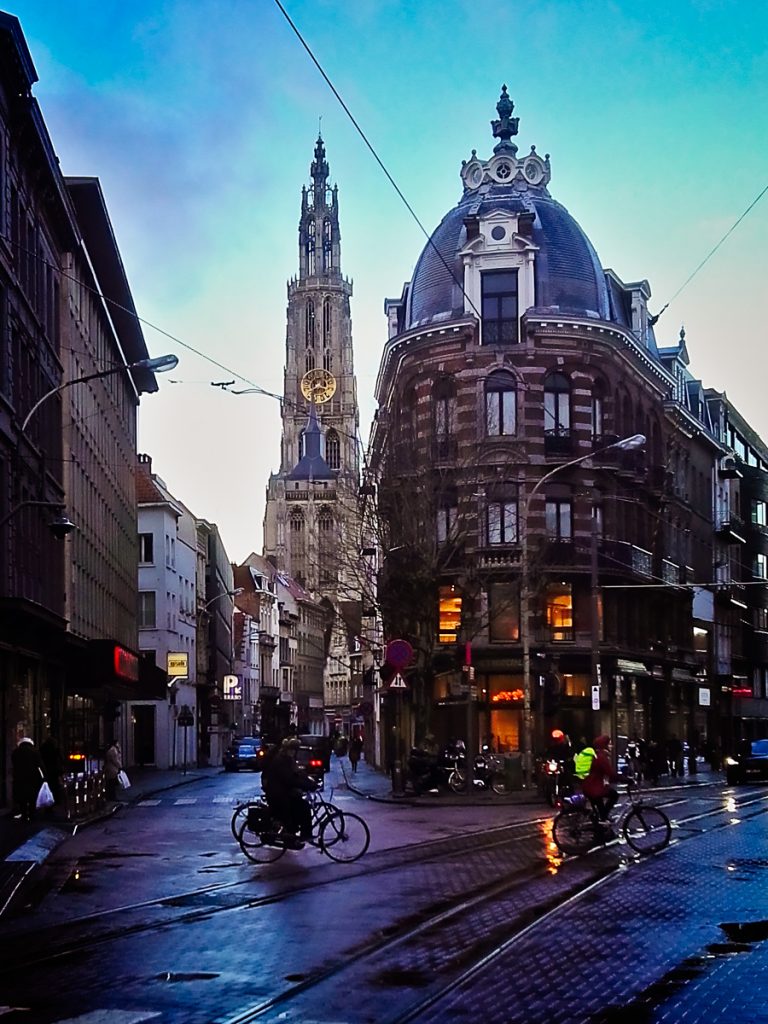
Since I know Afrikaans, I can cope well with Flemish as long as it is in written form. I can easily read and understand signs, newspaper articles and the like. Even if the Belgians talk to each other, I know enough to know at least roughly what it is about. But whenever I try to make myself understood in an Afrikaans adapted to Flemish, I am somehow understood, but the salespeople immediately switch to English.
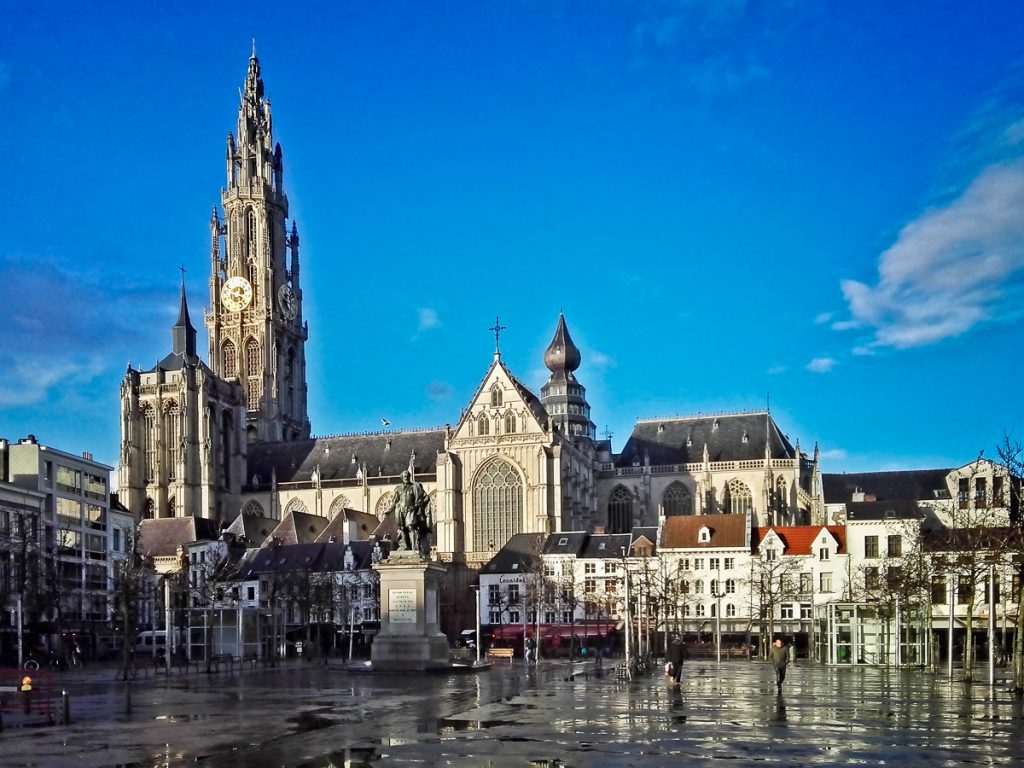
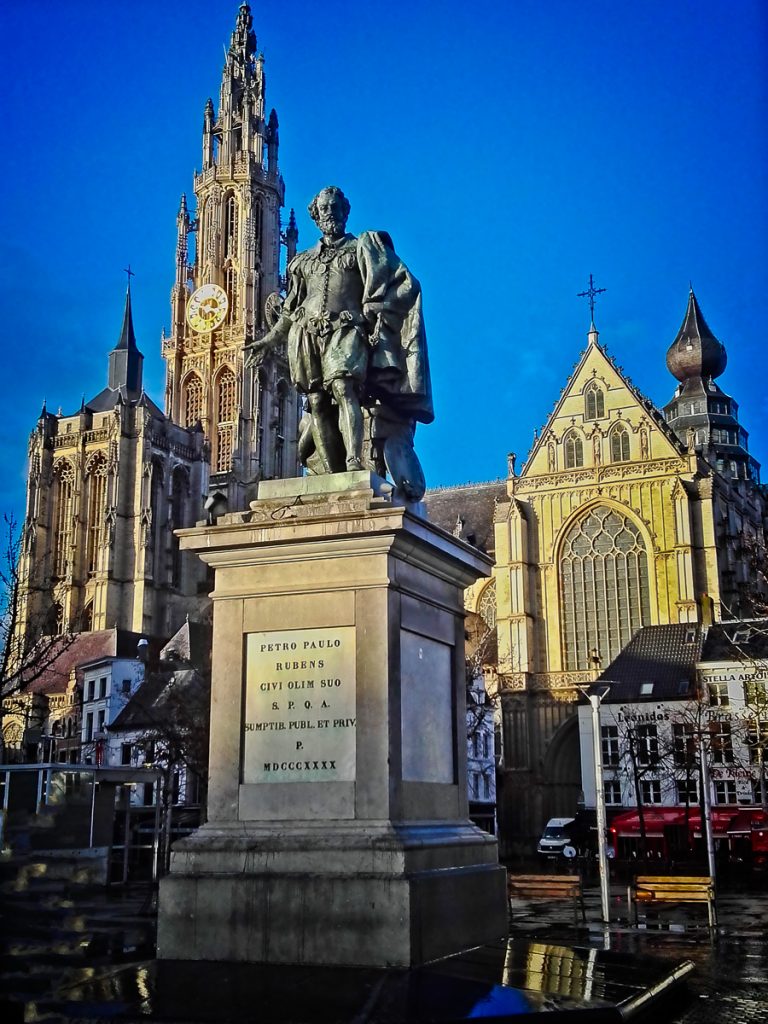
The old town of Antwerp is beautiful and worth a visit. In the centre is the cathedral, around it are the old houses in the Flemish style. I stroll through the alleys and take pictures.
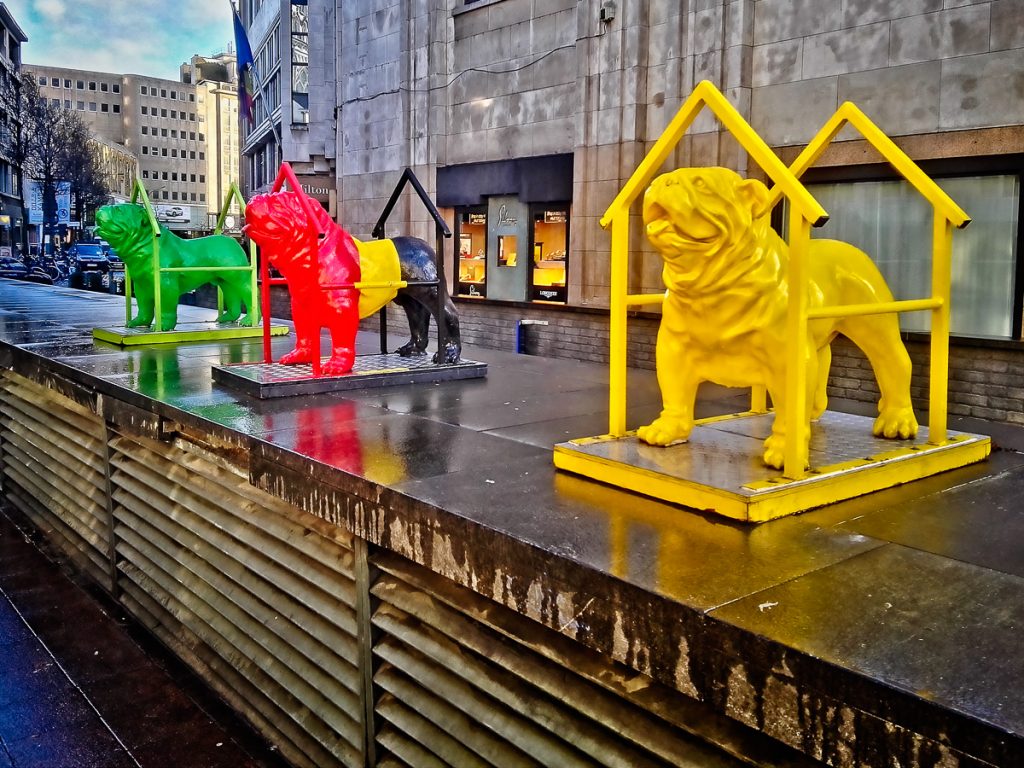
The weather is playing along. In the morning and on the way in the city, it had rained and sleeted heavily. But in the two and a half hours in the town, the clouds rip open. The sun illuminates the old buildings with golden light. The sky above is blue.
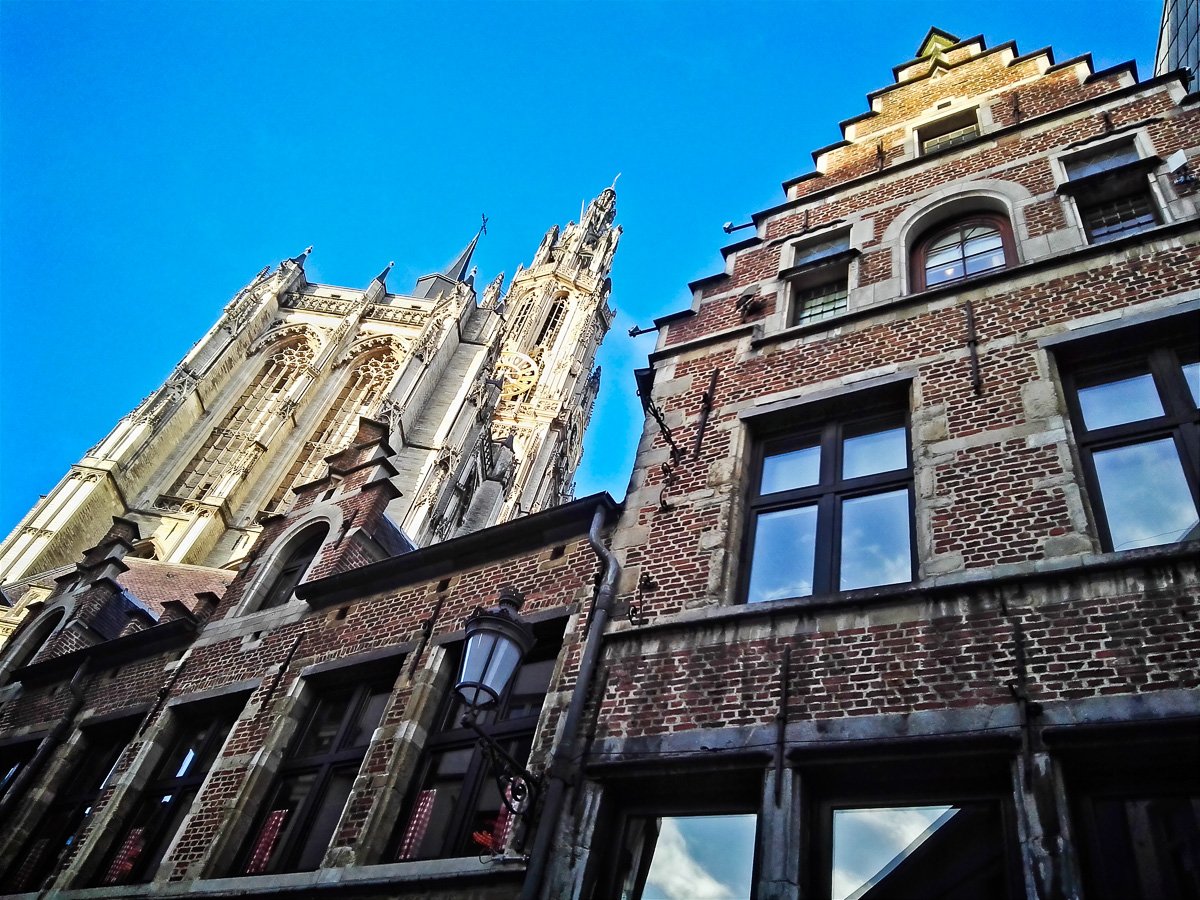
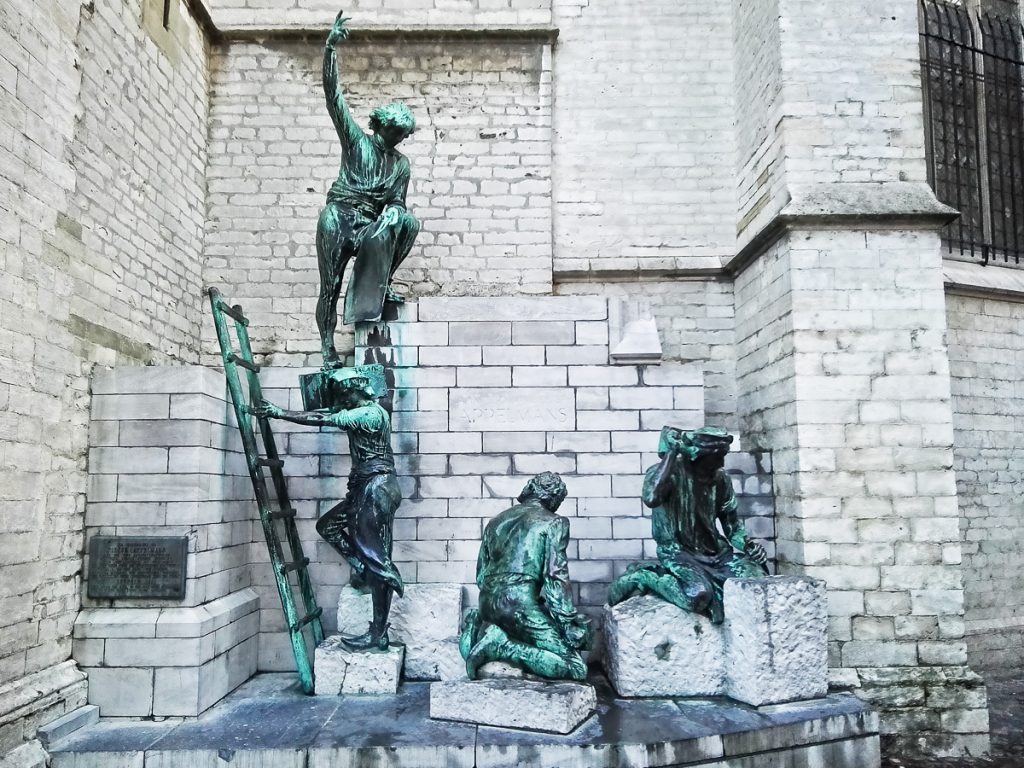
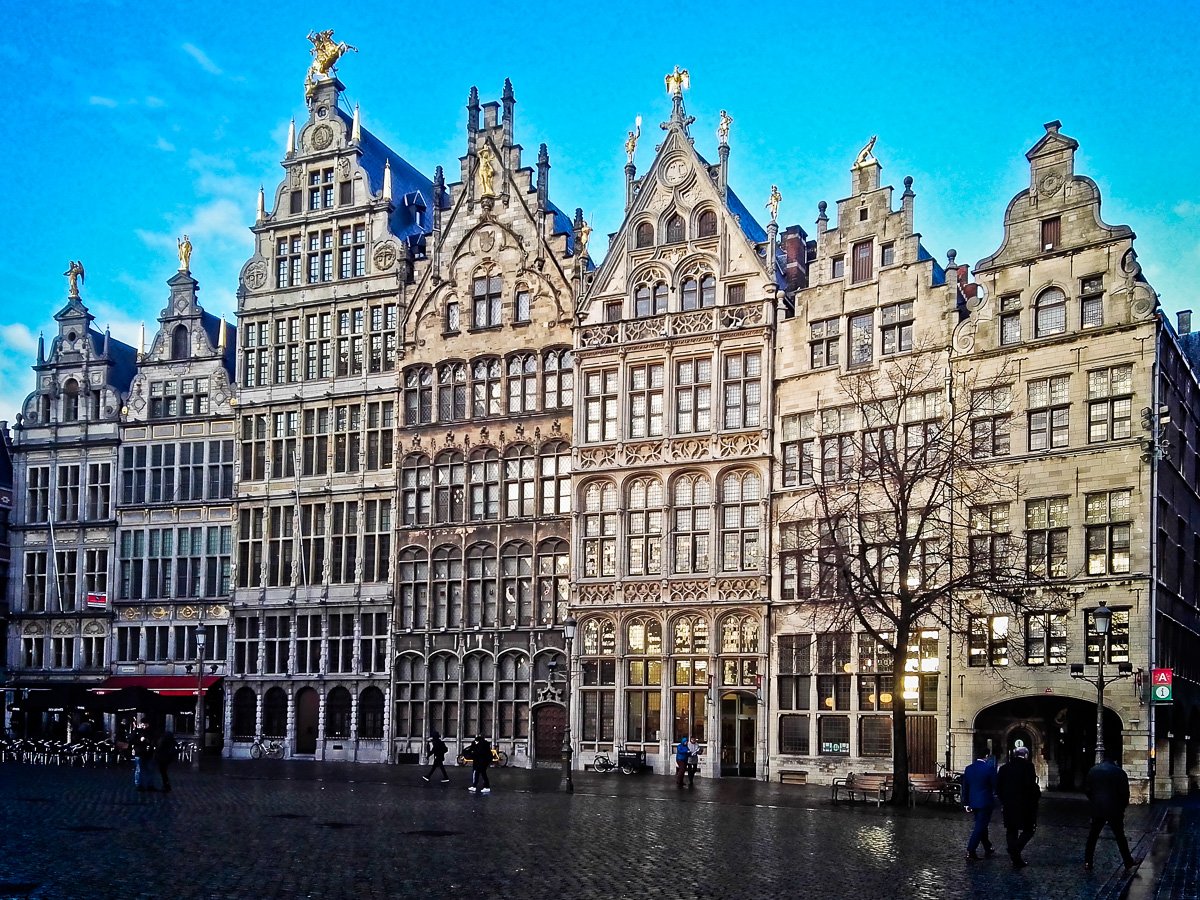
Then I stand in front of a Belgian french fries booth. Belgians are particularly good at three things: beer, chocolate and fries. I have already bought chocolate. In the supermarket, I also stood in front of the Trappist beer and considered whether I should take one or two bottles with me and then decided against it. Now I stand in front of the fries booth. I’m stuffed from lunch, but who knows when in my life I’ll eat real Belgian fries again? I try it again with my Flemish Afrikaans and order “Friet klein met Mayonnaise asseblief” – you can’t do much wrong – but the vendor immediately switches to English. So much for Anette’s attempts to communicate with the Flemish in her language.
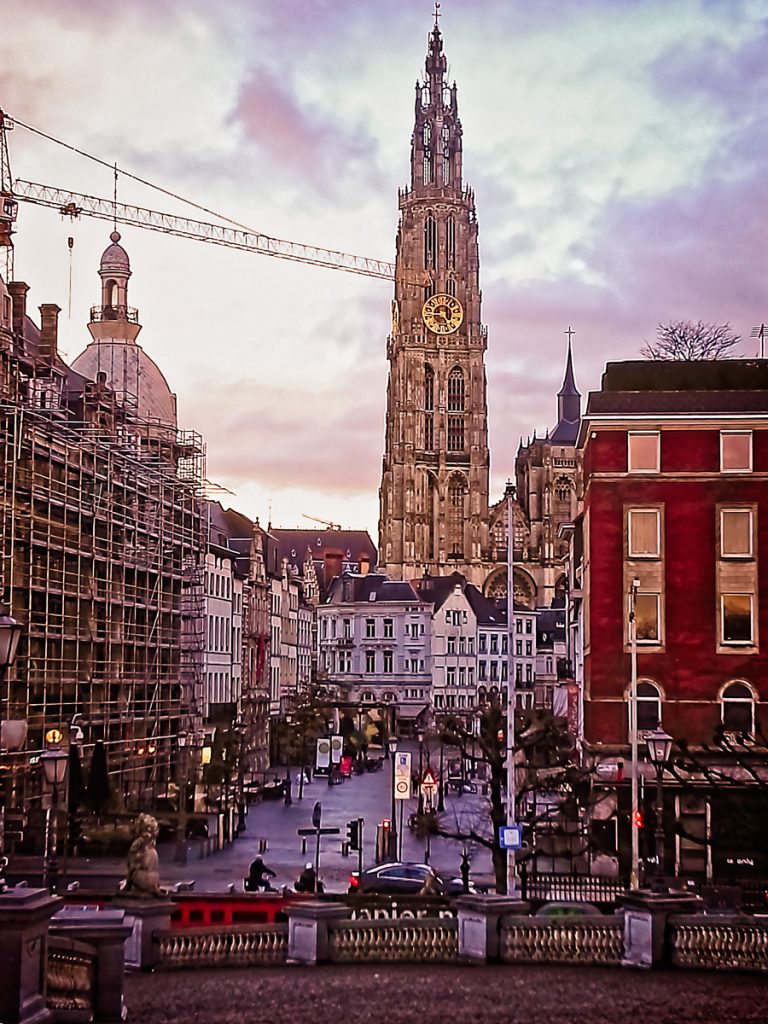
There are still a few minutes until seventeen hundred, and so I walk to the Schelde. The sun sets, and its last light shines through the clouds, light that beautifully illuminates the cathedral. I regret having only my smartphone with me. With my Nikon, you could have done much more with the sunset and the light. But the best camera is the one you have with you.
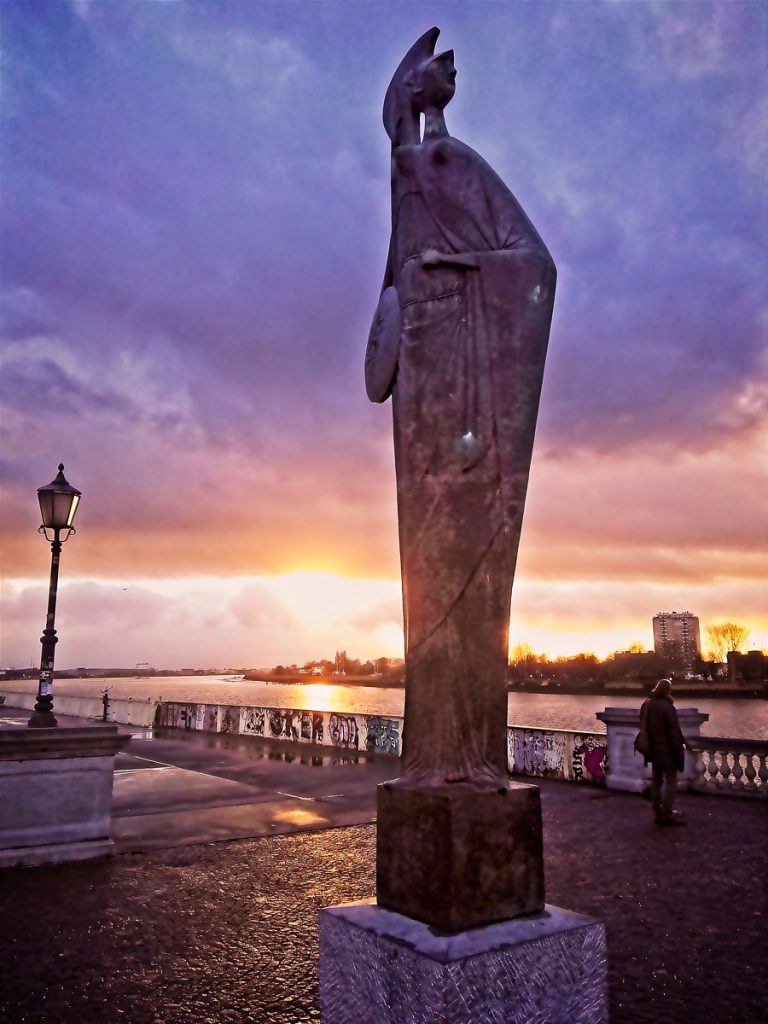
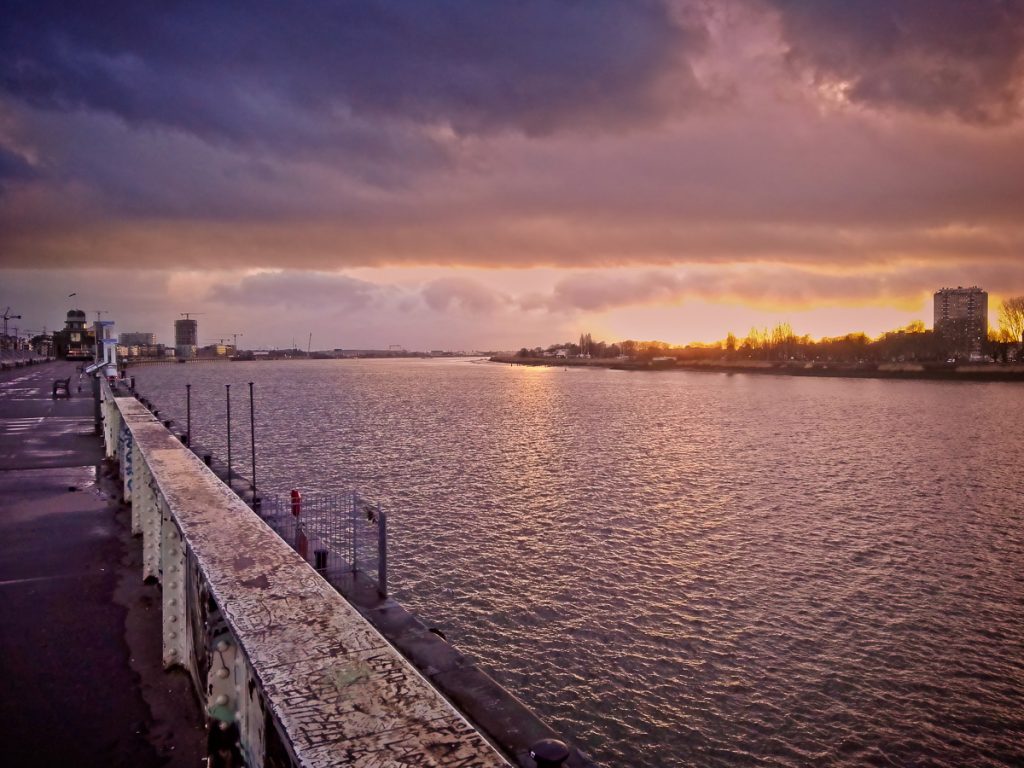
Right on time at seventeen hundred, the captain and his wife come to the meeting point. We are approached by a man who has been standing around for a while. Is he the captain of the Bright Sky? Yes, he is. It’s the taxi driver who’s supposed to take us back.
We drive again through the congested streets of Antwerp. The taxi driver asks if we have been shopping because it is a winter sale. The captain says that the taxi driver would never guess what he had in his backpack — 20 kg of good meat. During the trip to Namibia, there will be a barbecue, and it must be better meat than the usual. I quickly calculate: 25 people and 20 kg of meat – we will all be stuffed.
Otherwise, we talk about Belgian drivers, Belgian beer, French fries and chocolate and about terrible architecture and building sins. The captain and his wife had waited a week for the Bright Sky in Antwerp before being ordered to Hamburg. And he had been to the city from time to time in the last 30 years. Anyway, he knows his way around the city quite well. The taxi driver knows his way around the labyrinth of the harbour and drops us off in front of the gangway of the Bright Sky.
It had been a beautiful afternoon. The trip didn’t cost me a cent, as the captain was allowed to use the taxi at the expense of the shipping company. I am very grateful to him for the ride.
Pierre is not around. He spends the night in a hotel in Antwerp. There is free Wi-Fi, and he has to do some business correspondence.
The Bright Sky is bustling. The barges that delivered the coal/anthracite are gone. The cranes lift heavy metal plates into the belly of the ship. It will probably go on like this for another two days until the vessel is fully loaded. Outside it is so loud that you can’t open the window and every time something substantial is loaded, the whole ship rocks.
Would you like to see an overview of all articles about my journey on the cargo ship Bright Sky? Click here for a table of contents.
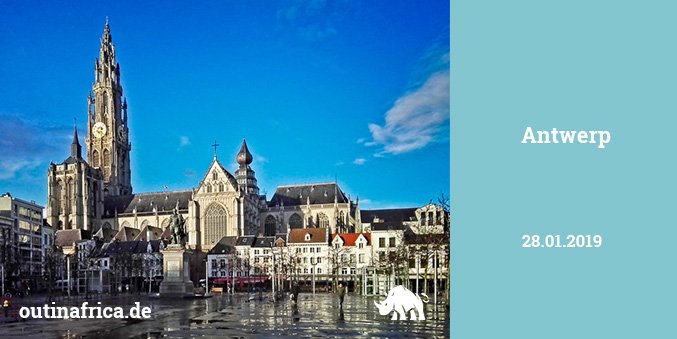
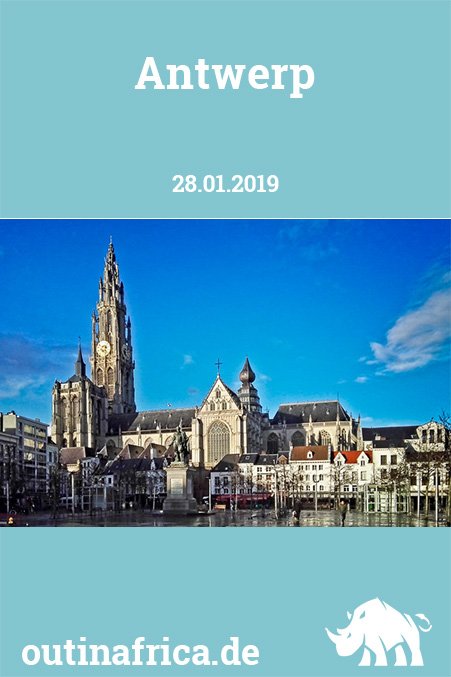

Leave a Reply